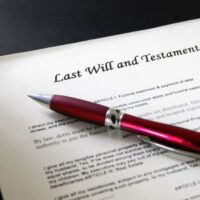Why Would a Will Be Invalid?

Foundational to any estate plan, a will allows individuals to clearly state how they want their assets distributed after death. But what happens when a will is challenged, or worse, declared invalid?
In Florida, several factors can lead to a will being deemed legally unenforceable. Talk to a Palm Harbor estate planning lawyer to review these issues, doing so is essential for both those creating a will and those concerned about a loved one’s estate.
Reasons Why a Will May Not Be Valid
There are specific legal requirements for a will to be valid in Florida. If those requirements are not met, or if other legal issues are present, the will can be challenged or overturned.
Common reasons for a will to be deemed invalid:
- Lack of testamentary capacity. To create a valid will, the person making it (called the testator) must be of sound mind. This means they must understand the nature of their assets, who their beneficiaries are, and the effect of signing a will. If someone was suffering from dementia, serious mental illness, or cognitive decline at the time the will was executed, a court may determine the testator lacked capacity.
- Undue influence. If someone exerts extreme pressure on the testator to change their will, especially in a way that benefits the influencer, a court may rule the will invalid. This often arises when a caregiver, new spouse, or family member manipulates an elderly or vulnerable person into rewriting their estate plan.
- Improper execution. Florida law requires specific steps to properly execute a will. The will must be in writing, signed by the testator (or by someone else at the testator’s direction and in their presence), and signed by two witnesses, who must sign in the presence of the testator and each other. If these requirements are not followed, the will may not hold up in court.
- Fraud or forgery. A will may also be invalid if it is forged or if the testator was tricked into signing it under false pretenses. For example, if someone signs a document believing it is something else entirely, the court may find the will to be fraudulent.
Interested parties, typically spouses, children, or other beneficiaries, may challenge a will during the probate process. A challenge must be based on legal grounds and supported by evidence. Timing matters too as Florida law sets specific deadlines for filing a will contest.
Creating and Questioning Documents
A valid will provides peace of mind and prevents family disputes. But if a will is invalid, it can cause confusion, conflict, and financial strain. Whether you’re drafting your own will or concerned about the validity of a loved one’s, consult a qualified Palm Harbor estate planning lawyer to protect your rights and preserve your family’s future.
Who can help you with an estate document challenge? The attorneys at Miaoulis Law are well versed in all of the formalities of a valid estate plan. When questions or concerns arise for families in Palm Harbor, FL, or Pinellas County, FL, legal professionals are available to provide valuable guidance. Schedule a confidential consultation today.
